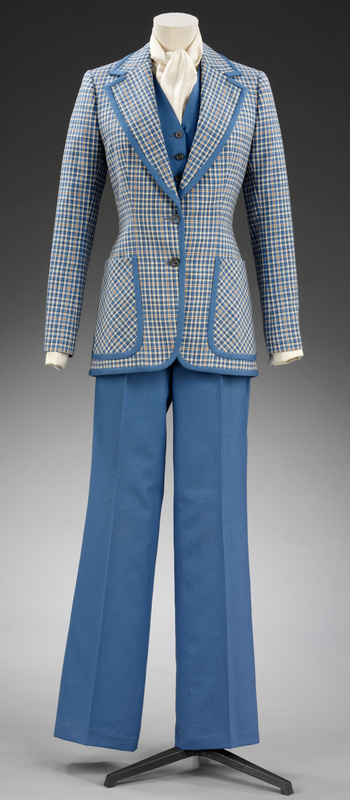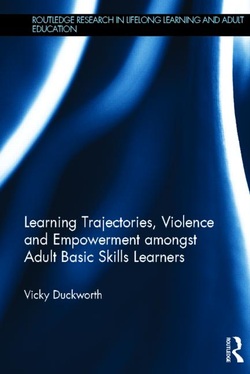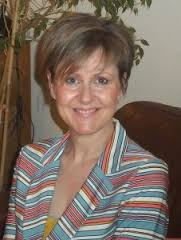 My search for authenticity and for critical space I am very interested in my feelings as I start to put this story down. I have done a fair amount of reading on narrative inquiry and auto-ethnography. I think I am starting to realise how much this matters, not only at a personal level, but also because I am concerned that my research should matter, too. I hadn't ever really considered my position as a woman in research. Coming as I did from a liberal middle class home, I was always aware of my privilege as being middle class and white. But I was also taught that being female was a good thing, too. I never really realised for many many years that some women had a rough deal. I spent some of my childhood in a rough overspill area of Manchester. I remember my parents talking about a woman who had been hit by her husband, and they talked about how her previous husband had also battered her. My mum talked about how some women keep on going back to abusive partners and how others choose abusers again and again. That whole concept was a revelation to me, and it was the first time I think I realised that men and women were different in terms of power. When I went to Manchester to study for my first degree I read psychology. I still think I was lucky that I was brought up as a social scientist; at that time this was a relatively tolerant arena and so gender politics were really an irrelevance to me; for a very self centred point of view I didn't feel that I had lost out because of being a woman, nor that I was misunderstood or that I was discriminated against. Perhaps I was falsely conscious. I don't know..... although looking back now thirty years I see that the undergrads were 80% female and only one of the lecturing staff at the time was female - Elena Lieven who is now a professor. I was also lucky enough to be studying at a time when Erica Burman was a postgrad and I took some of her seminars. She came to talk to my EHU psychology 3rd year group last year about deconstructing developmental psychology. An amazingly inspiring woman and one whom I admired then and still do now. But the whole patriarchal system stuff passed me by. I was concerned about race and about disability, and about the politics of developing countries, but my interest in sociology was really in the field of symbolic interactionism, where Wes Sharrock and John Lee both had a huge impact on my thinking. I loved reading Szasz, Laing, Wittgenstein, Searle and Winch. But again, feminism in no way really impacted on me. As I write, I find this story I am about to tell really interesting from a feminist point of view. My mum was working in FE as a lecturer in English when I was about ten. She was a fashionable woman and had worn a trouser suit to work. A smart trouser suit, as befitted a young lecturer in the 1970s. She had two or three; striking colours, beautifully tailored and they suited her. Not long after she had started her job at the local FE college she was called in by the principal and told that if she wore trousers again to work she would be sacked. I was only young so I wasn't party to the discussions that she and my dad must have had that night, but she DID wear a trouser suit the next day, and indeed she was sacked. That started a big, big row. The press were involved and sat outside our house for weeks. My father got hate mail accusing him of being a terrible man who could not keep his harlot of a wife under control. In the end my young brother and I were sent away for a few days to our grandparents' so we would be less upset by the furore. Mum gave interviews on TV and to the papers, all the time wearing trousers. In the end, she got her job back, at which point she resigned, and a local head teacher phoned her and offered her a job immediately. That head teacher became a good friend and in many, many ways a guardian angel for my mother for thirty or forty years after the 'trouser suit' events. There's a research paper here that I'm determined to wrote....
0 Comments
I got this from one of my ex-teacher trainees yesterday....if I ever needed a reason to do what I do, this was it. Hi Janet Hope you are well. Just to let you know, today I had an amazing lesson. I love teaching. I am very lucky to have a very enthusiastic group of learners. I am becoming very attached to them all. This is what I want to share with you. One of my learners is having a rough time at the moment. At the end of the lesson she waited until everyone had gone to tell me this; she said that she really didn't want to get up out of bed today, however, she thought, I love my Wednesday psychology lesson, Wednesday is my best day, I feel uplifted and I leave the class "buzzing all day". My learner is a sweetheart but also "true grit". and without stereotyping " you wouldn't mess with her or get on her wrong side lol". I felt so overwhelmed and proud. Then I remembered, days when I felt like that. However I would say the same in my head, "its janets lesson", and I knew I would be going in because I was going to your class. and I would always feel better when we were all together. I wanted to let you know that I thought of you. Really hate the paperwork, struggle to keep on top of it if I am honest, but I remember you saying how rewarding teaching is, and wow, I felt that today. Thank you for not only being a teacher but taking the time to listen to my fallen days, I will never forget you. KInd regards Your friend who you inspired x  Vicky Duckworth's book on the learning trajectories of adult basic skills learners - very powerful and important. Let me tell you a story…. Yesterday, I was privileged to be invited to attend a seminar given by my good friend Dr Vicky Duckworth. I have had many fabulous conversations with Vicky over the last few years, and I have always been impressed with her work and thinking. I was flattered and honoured recently to be given a signed copy of her book, which is essentially an adapted version of her thesis. The book- and the seminar- are entitled ‘Learning Trajectories, violence and empowerment amongst Adult basic skills learners’. My own research is concerned with the lived realities of teachers’ lives, and one of the things that interested me is the integration – or lack of it between personal and professional identity in teachers. I’m also interested in the dual nature of professional identity – or sometimes even the hybrid nature of professional identities. As I've got to know Vicky better, I have been amazed at how she, in common with many other women, juggles a personal and a professional life; in fact she juggles more than one professional life, one as a teacher educator of note and one as an academic, with impressive list of publications, including peer refereed journal articles and books, to her name. Vicky’s paper, at the prestigious department for educational research at the University of Lancaster, concerned the learning trajectories of adult basic skills learners in Oldham, and uses Bourdieu’s thinking tools to consider issues such as symbolic violence and empowerment in such learners. The research is participatory action research. This is partly because, I guess, of the nature of the topic, but also it reflects something about the Vicky’s ontological and epistemological stance, about her approach to life, her inclusive approach to her students and to the nature of learning. As well, it illustrates Vicky’s belief that if she is asking students to give so much of themselves in relation ot their learning and the participatory research, she has to give a good deal back. Sometimes, this is in terms of the amount of work, preparation, and energy she puts into her teaching, and at other times this message may be more personal self-disclosure about her own learning journey. Unusually for a formal seminar given at one of the top 10 universities in the country, Dr. Duckworth brought with her and had invited a number of significant people who were important to her. I was one of those people, and perhaps in many ways that is not so surprising, as I am myself working in the field of educational research; I do consider myself to be a friend of Vicky’s, but I might well have attend such a seminar anyway. However, a very close and old friend of Vicky’s, Michelle, who is working in community health, also came to the seminar, as did Vicky’s 10-year-old daughter, Niamh; and Sophie, a young relative of Vicky’s, who took an active and interested part in the seminar butt was also interested in looking round Lancaster University as it was a possibility that she might study there in the future. As well, two of Vicky’s teacher trainees from her initial teacher education course had made the journey to Lancaster to attend the seminar. In addition to these people, there were a number of well established and well-known researchers from the University of Lancaster at the seminar, which was videoed and which will be published on University website. So all in all, it was a varied, interested, knowledgeable and supportive audience. One of the things that is a theme in Vicky’s work, is the idea of education as empowering; and the book as well as all of Vicky’s work, is an impassioned and exceptionally powerful account of the learning journeys which learners in in a marginalised community in a northern mill town undertook, and of the the barriers and struggles which beset them along the way. I have myself struggled with a lot of the work of Bourdieu, but Vicky uses his thinking tools with facility to analyse and explain the narratives of the basic skills learners with whom she was working, and to put a significant amount of emphasis on the capitals which are held and developed by such learners and which both constrain and enable some of the individuals in their learning journeys through the education system. Vicky’s own journey was something which was also mentioned, and which is significant. Vicky grew up in the same town, in a family where she was one of the first to go to college and university, having had a background where education had not been a priority. She started off as a nurse and midwife, and then became a tutor and program leader delivering literacy in a large FE college in the north of England. She is now a successful teacher educator, author, academic, friend, wife, mother; a multiplicity of roles which she carries out with facility, authenticity and integrity. The seminar itself was fascinating; talking to Vicky about her work always is, and always makes me think. However, the thing is I can’t get over, is how what Vicky was saying about empowering her adult basic skills learners, and in their developing resistance to some of the agendas and to the constraints of some of the factors which impact on their lives, was also being played out very graphically in microcosm, in front of us. Vicky’s younger daughter, Niamh, was with this. She is an intelligent young woman; although still at primary school, she has a wisdom which belies her years. What was fascinating was to see that this young woman was completely at home in the rather rarefied environment in which she found herself. Being only 10, of course she was fascinated with a laser pointer. But she also chatted to participants of the seminar in an articulate and friendly fashion. Unlike the stereotypical 10-year-old, she sat and listened to her mother’s presentation (and quite clearly had listened), throughout the initial presentation. And then when the questions were being asked, Niamh raised her hand. The chair, Carolyn Jackson, is Professor of education, with a particular interest in gender and education, asked Niamh to speak. The question which Niamh asked was one which would have done any of the participants for the seminar proud. It concerns labeling. One of Vicky's points is that Bourdieu’s concept of symbolic violence has limitations in that it does not really engage with the nature of labelling as a symbolic act of violence. Vicky expands and draws on Bourdieu’s notion of symbolic capital to include the work of sociologists such as Howard Becker and Erving Goffman and their work on labeling. Vicky’s work refers to and analyses the dominant symbolic power of schooling and labeling which had in many ways pathologised the learners with whom she had worked. Niamh’s question was very perceptive. She asked whether there were in fact any learners in her mother’s classes who had not been labelled, and if so what had been happening to them, how had they behaved, and she wanted to know whether the non-labelling was significant. This is an important question, and one which would bear a considerable amount of further analysis. Vicky, the academic as well as the mother, answered this question thoughtfully, courteously and she, as well as the rest of us acknowledged the importance of the imput from this young woman. As I drove home, there are many things which came to my mind. But the one image that I will always have in my mind, is an almost eidetic image of a young 10-year-old woman, raising her hand in a seminar of distinguished people, to ask a question of her mother, also a significant academic and thinker. If I learned nothing else yesterday, I did see, in very concrete terms, that the cultural capital which was gained by Vicky in her time in education as well as subsequently, interacting with the social and other forms of capital capital, had resulted in her daughter having a significant amount of social capital which gave her the confidence to ask a question , and one which was sensible, in what was in many ways a very intimidating environment; and to be able to hold her own in an environment where many young women of Niamh’s age might has been sitting drawing, playing a game on a phone, or possibly listening to music quietly in the background. If a clearer demonstration of the fact that capital reproduces, and education is empowering and emancipating, were needed, then I cannot think what it could be. It was intensely emotional and moving to watch Vicky and her daughter interact in what could have been a very intimidating environment for Niamh, and it demonstrated so clearly that Vicky’s own resistance and empowerment had resulted in Niamh having such capitals. We know that there is a distinctive cultural pattern of social reproduction in relation to learners’ choices in many cases, and the example of Vicky and Niamh, show that in fact Vicky’s own resistance and learning journey resulted in her developing a relationship with her daughter where her daughter was empowered to ask a relevant, articulate, and interesting question about labeling in a seminar. I wish I could explain in a more articulate way how powerful and moving that was to see, and what a wonderful illustration Vicky and her family and support network are of her own thesis, and how she and her relationships with her family and her friends exemplify the empowering nature of education and of caring capital. That picture will stay with me forever. Thank you, Vicky and Niamh. Details of Vicky's book can be found here .  Dr. Vicky Duckworth |
About me...
I was a psychology and social sciences teacher for many years and now I am in the throes of a leadership, teaching and research career in HE. I care passionately about education. This blog will show you why and how.
Categories
All
Archives
March 2023
|

 RSS Feed
RSS Feed